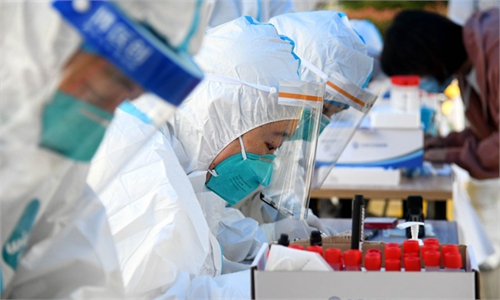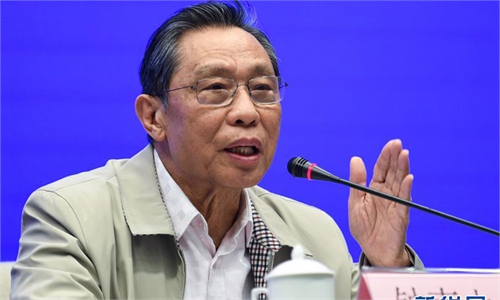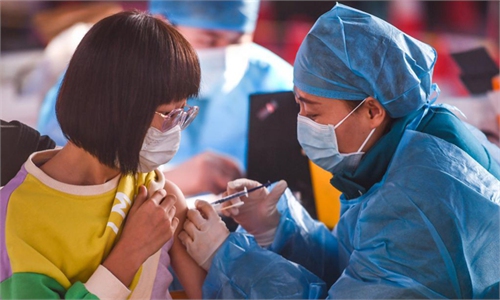Chinese public holds stronger faith in dynamic-zero strategy after 'living with virus' proved untenable in S Korea
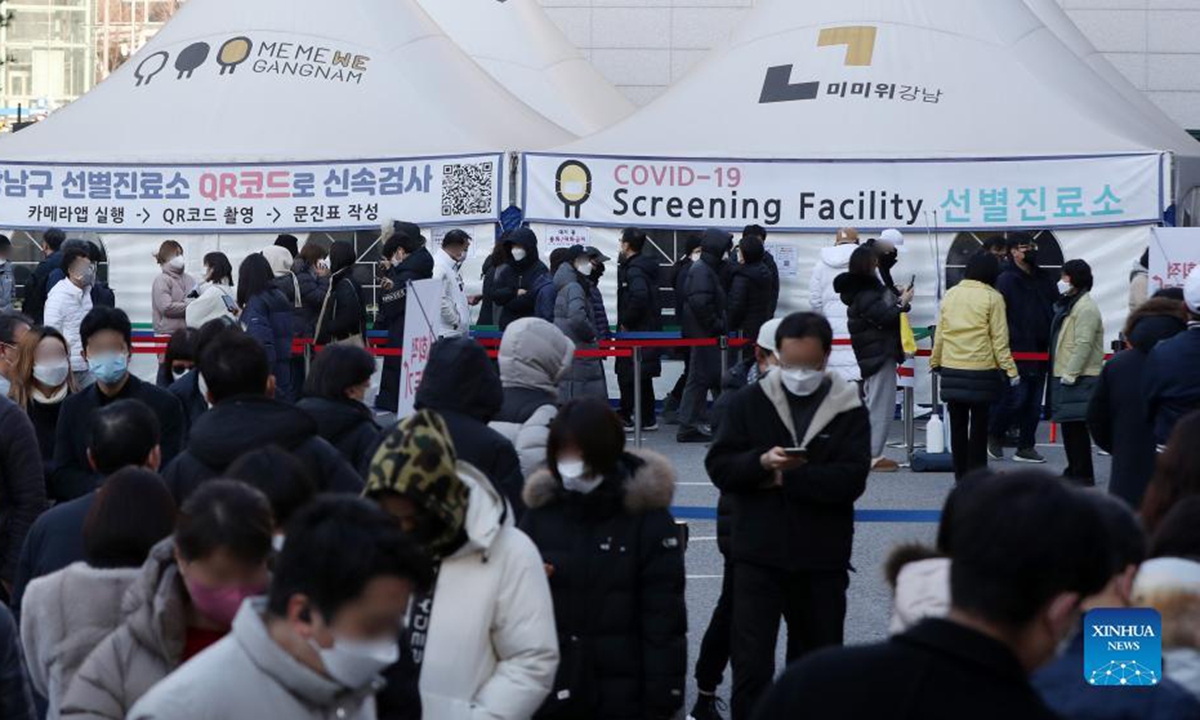
People wait for nucleic acid test at a sampling site in Seoul, South Korea, Dec. 8, 2021. Photo: Xinhua
South Korea's COVID-19 control policy has received unprecedented attention from Chinese, as a hashtag dominated on Sina Weibo until Friday morning about the country giving up on "living with COVID-19" due to a spike in infections.
Showing concern for the close neighbor, Chinese netizens also expressed their strong faith in China's dynamic-zero strategy, which is frequently criticized by some external forces, has encountered misunderstanding and complaints domestically, but has proven effective in curbing all previous resurgences.
South Korean President Moon Jae-in apologized on Thursday to the nation for tightening policies, the Yonhap News Agency reported. According to the new policies which become effective from Saturday, gatherings are limited to no more than four people who are vaccinated, unvaccinated people have to dine alone or use takeaway services, and cafes, restaurants and theaters are subject to curfews.
Before that, the country had one and a half months of "living with COVID-19," which led to spikes in numbers and consecutive records of daily new infections up to 7,850. More importantly, the number of critical cases rose and strained hospital capacities, media reported.
Local health authorities predicted that without effective interventions, daily cases could exceed 10,000 this month.
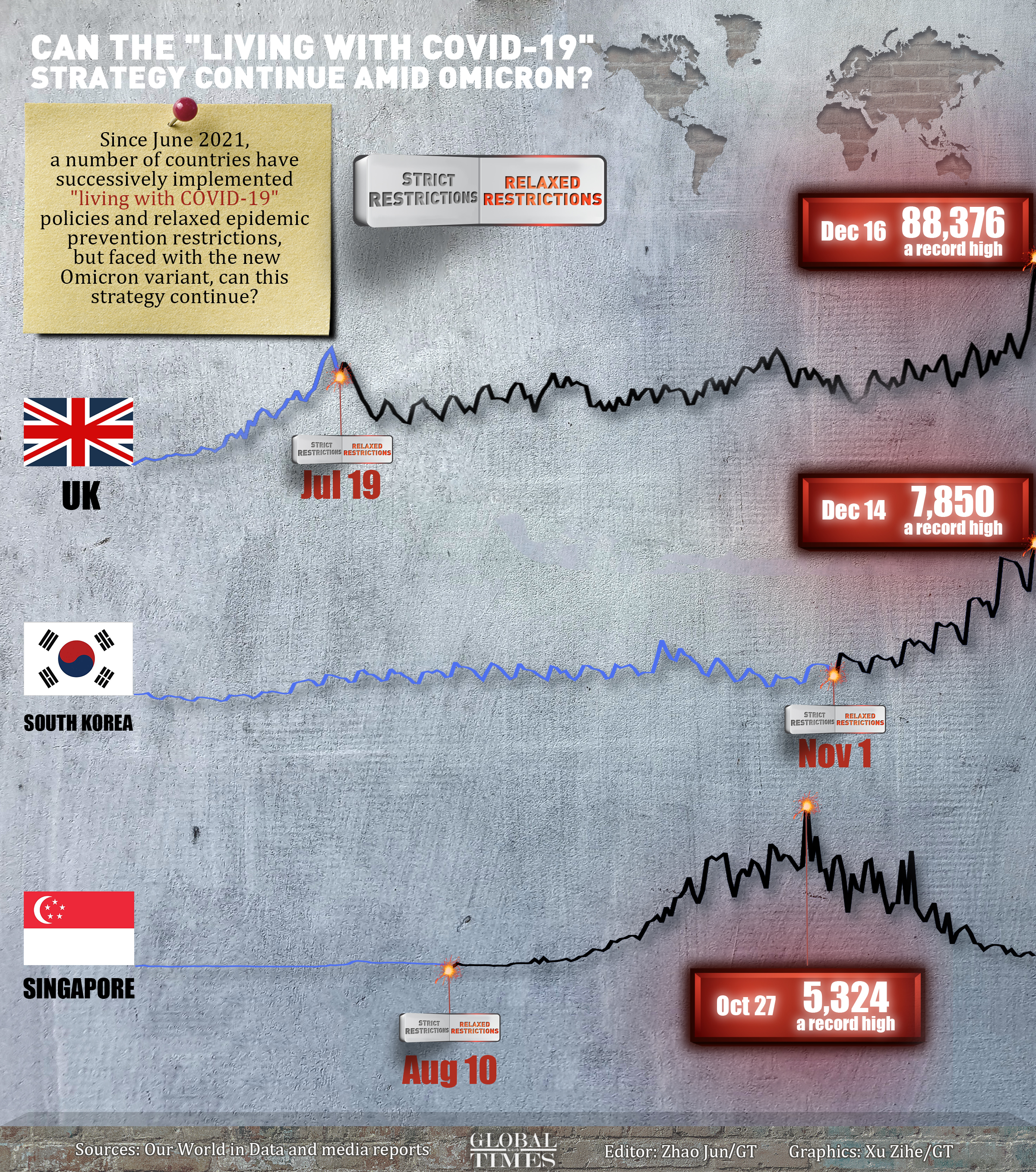
Can the "living with COVID-19" strategy continue amid Omicron? Graphic: Xu Zihe/GT
Commenting on the world under the challenge of Omicron, a Weibo user wrote, "Ask whether the coronavirus wants to live with humans. As long as the virus keeps mutating to unknown directions, downplaying its harms as a common flu is equal to murder."
"Living with the virus involves taking necessary precautions while resuming our daily lives, not throwing away masks and partying all day long as if there is no such thing as COVID-19," said another Weibo user.
Meanwhile, the reality of the world boosted public faith in China's dynamic-zero strategy — netizens expressed strong belief that the method can curb the current resurgences in multiple cities as it had achieved before.
Zhang Wenhong, a noted Chinese virologist and epidemic control expert, said on Friday the dynamic-zero strategy can rein in resurgences in about four weeks, putting it out is "just a matter of time."
Despite external doubts and some domestic complaints, such as livelihood difficulties in Southwest China's port city Ruili, China has adopted a strategy that is overall suitable for its large and concentrated population, and for the coronavirus that remains largely unknown and unpredictable, an anonymous Beijing-based immunologist told the Global Times on Friday.
The expert said China's strategy is another way of "living with the virus" — taking precautions without overly panicking, not completely casting aside control rules like some countries did. Loosening our guard could be plausible for a while but it cannot be done with the ever-changing pandemic situation, the expert said, hinting at the Omicron variant.
British Prime Minister Boris Johnson announced in mid-July that the UK must "live with virus" and eased control measures, maintaining the country's daily cases at around 45,000. But the Omicron variant totally changed the scenario recently.
The UK saw a record number of 88,376 COVID-19 infections on Thursday, and it has almost the quickest Omicron spread outside South Africa despite the UK announcing a travel ban rather early. The reality prompted the closure of some schools, government advisories of only holding small Christmas gatherings and all-round efforts to promote vaccine booster shots.
Singapore has also tried to reopen its borders step by step since June. In August, the government loosened restrictions, saying the city was in a stronger position on its reopening journey in a "cautious and calibrated way" — then within weeks it had moved back toward stricter curbs.
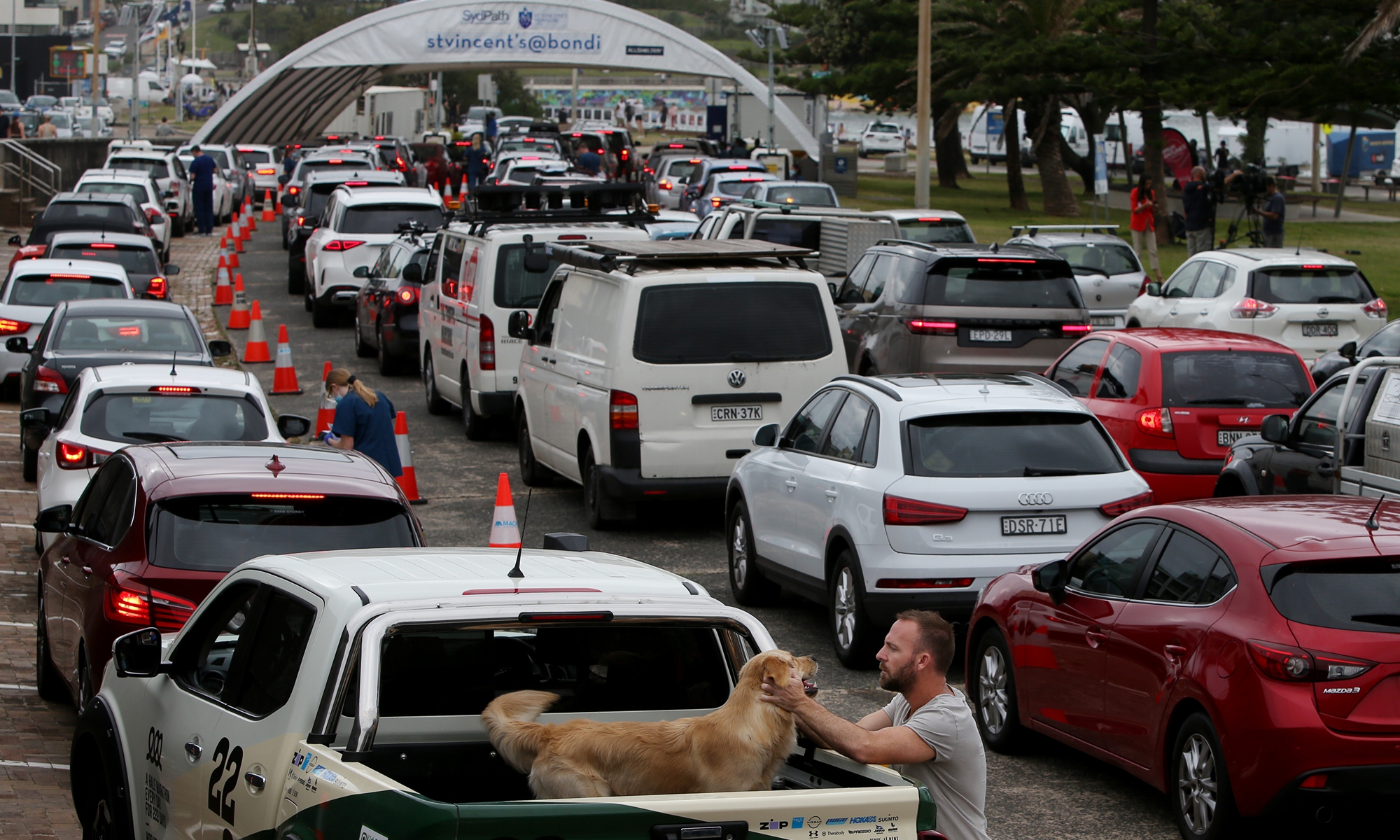
Australians fall in line at a drive-through COVID-19 testing clinic on December 17, 2021 in Sydney. Cases are on the rise across New South Wales, including reports of the Omicron variant, but control measures such as social distancing and mask rules were further eased. Photo: VCG
Countries are trying to find a solution that can balance public health and social, economic operations, but back and forth policies without a clear and consistent guiding principle could cause social divisions and mounting discontent, analysts said.
For Omicron, which is replacing Delta in the pandemic, the World Health Organization warned that all measures should be taken; it's not vaccines instead of distancing, it's not vaccines instead of ventilation or hand hygiene.
Zhang said that no matter whether it's admitted or not, China's experience has become a global option for effective epidemic control. If public health and social measures are not taken, "we cannot defeat Delta or halt the spread of Omicron."
